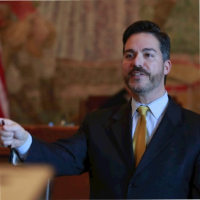Roseland Criminal Lawyer, New Jersey
Sponsored Law Firm
-
 x
x

Click For More Info:
-
Francis P. Crotty Esq.
103 Sterling Dr Franklin Lakes, NJ 07417» view mapCriminal Defense Experience You Can Trust
Let Francis P. Crotty Esq. handle all of your criminal defense legal matters today.
201-294-6462
Albert Cernadas
✓ VERIFIEDCriminal, DUI-DWI, Misdemeanor
Albert Cernadas Jr. is the former First Assistant Prosecutor of Union County and Certified by the Supreme Court of New Jersey as a Criminal Attorney. ... (more)
Brian M. Dratch
✓ VERIFIEDPersonal Injury, DUI-DWI, Employment, Real Estate, Traffic
At Franzblau Dratch, P.C. we provide our clients with legal services in a comprehensive, yet cost effective manner, while at the same time reflecting ... (more)
Christopher Raymond Fritz
✓ VERIFIEDDivorce & Family Law, Criminal, Lawsuit & Dispute, Family Law
Introducing Christopher Fritz: A Resolute Advocate for Divorce and Family Law in New Jersey. In the realm of divorce and family law, one name stand... (more)
Timothy Edmund Burke
Complex Litigation, Employment Contracts, Criminal, Defamation & Slander
Status: In Good Standing
Martin S Goldman
Other, Immigration, Criminal, Accident & Injury
Status: In Good Standing Licensed: 57 Years
 Francis Crotty Franklin Lakes, NJ
Francis Crotty Franklin Lakes, NJ Practice AreasExpertise
Practice AreasExpertise



